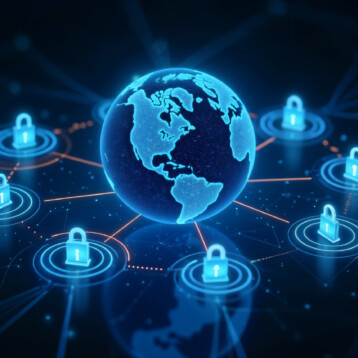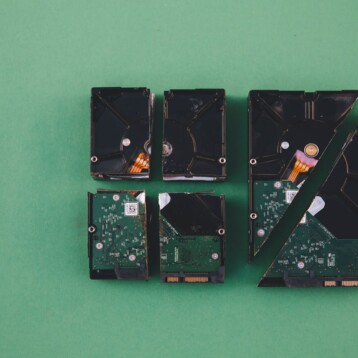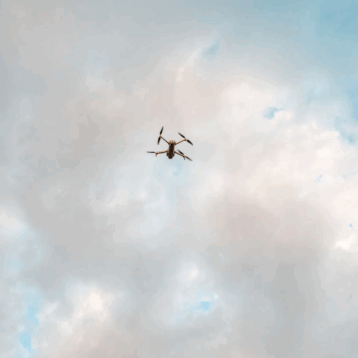Recent events have shown people that, while it is preferred to stay connected to a grid of utilities that will always keep them in supply (and to a grid that they can rely on, for that matter), there may come a time that it fails them. It’s the responsibility of the state to provide for those paying for the services through taxes that are failing them, but that doesn’t mean that you can’t take it upon yourself to provide for yourself.
Here, we’re going to take a closer look at some of the tech that can help you stay warm, safe, and connected when something cuts you off from the grid

Make your generator smart
First of all, if you want to keep your home self-sufficient in the case of a crisis, then a backup generator should be considered essential. Essentially, these are generators powered by a separate fuel source from the rest of the home (usually one that you have to procure yourself) that are designed to keep your lights on when the lights outside go off due to power cuts, blackouts, and other crises. Smart generators use technology to go a step further. They can automatically sense when your home has lost access to its usual power supply, turning on automatically. This isn’t a new development in the world of generators or anything, but it can make them much more convenient.
Storing your renewable energy
Depending on where you live, you may sometimes, or even often, produce more solar energy than you actually need. This can sometimes be sold back to the energy providers on the grid for a slight profit, but you can also choose to keep it for yourself in the event of an emergency. Should there be a blackout and you don’t have enough renewable energy coming in to power the parts of the home that you need to be powered, then battery storage options like a Tesla Powerwall could be just what you need. Effectively, this stores all of the extra energy being produced by your renewable sources so that you can use them when you need to and, like smart generators, they can sense blackouts and kick in automatically.
Using only what you need
Heating and cooling take up the majority of the average home energy bill. It’s only natural, after all, it takes a lot of energy to change the temperature of a space and it’s often the most crucial to keeping us comfortable and safe. However, that doesn’t mean you should simply accept that it’s going to drain all your backup energy supplies dry, especially in a crisis. For that reason, you should make sure that you have a smart thermostat attached to any heating device used throughout the home. You can also use energy monitors to track the efficiency of your heating systems over time, too, so you can get a better idea of when you might need to service or upgrade them.

Hydration is crucial
The water mains do not fail anywhere near as regularly as blackouts happen, especially in parts of the country prone to bad weather. However, should your water fail, it can become a much more serious problem much more quickly. As such, technology such as Chaitanya Rain Harvest systems can be crucial in making sure that, so long as it rains, you have a source of clean and drinkable water. These systems need to be maintained on a regular basis, they’re not just emergency use, so you should also consider using them when you might normally turn on the taps to get your money’s worth out of them and to keep them on your mind throughout the year, too.
Keeping it cool
One of the things that you’re likely to start worrying about more quickly if your home goes off the grid is whether or not your food and drink will be able to stay cool and fresh. If you keep a freezer door closed, it can keep your food safe for hours on end but that might not always be enough. Solar-powered coolers have been a thing for a while now and, while they might not be able to keep things like frozen meat frozen indefinitely, they can serve as an essential backup once your fridge and freezer start to rise in temperature after having been turned off for some time.
Make sure you have fresh food to eat
The idea of becoming self-sufficient is one of the key reasons that people live the homesteading lifestyle, to begin with, and creating their own food is a big part of that. However, you might not have acres of land to make use of or even much of a garden. But that doesn’t mean that you can’t grow produce that you can then pickle and keep. Products like Click and Grow Gardens can be used indoors, helping you provide your plants with precisely the level of care, UV light watering, and nutrition that they need. What’s more, given that they are indoors, they’re much less likely to be bothered by pests.

Hot drinks to keep you happy
How well you can keep your home heated is going to depend largely on maintaining a good energy source, ensuring that you have backup heaters, and maintaining proper insulation for the household. However, to help you heat up quickly after a cold spell, there’s nothing quite like a hot drink. When you’re trying to use your backup power sparingly, you may not want to use things like a kettle to heat up a lot of water. Instead, backups like this battery-powered Zwilling portable water heater that can attach to your mug might be much better suited to the situation. It isn’t quite as essential as the other provisions named above, but convenience can be almost as important.
Nothing like a home-cooked meal
With the tips above, you should hopefully be able to keep your home oven or cooker running even when a blackout hits. However, there’s nothing wrong with having a backup, and a stove can be a highly versatile and independent backup to use. Most stoves can be powered using generators or with their own fuel supply, but there are entries on the market like the BioLite USB CookStove. As the name implies, this can be charged via USB, making it perfect for all kinds of backup batteries and portable chargers. This stove still needs to use wood but if you have a home out in a rural area or a regular supply of firewood, it could suit you just fine.
Forget the wires
Though it might not exactly be as important as having electricity, heat, water, or food available, there is no denying that modern living is a lot less convenient without a connection to the internet. After all, you wouldn’t be able to read these tips if you weren’t connected! Having the world’s largest encyclopedia and how to guide on hand can be pretty crucial in a crisis. For that reason, it’s important to have a backup internet connection that you can use when your usual provider isn’t able to help. Investing in things like a backup wireless dongle can be essential. More of us are living closer to mobile internet that can even be faster than home internet, so keep that in mind, too.
Keeping it clean
If you’re not able to rely on appliances as readily as you would, or you simply want to limit your reliance on power, then the question of how to wash both yourself and the things that you use on a daily basis can be quite a conundrum. But there are plenty of options that are out there. Low-energy travel showers can be charged via USB and, if you don’t mind colder water, can work just as fine in washing yourself. There are also gadgets like the Circo Manual Dishwasher that make it a lot easier to clean everything up by hand so that going off-grid doesn’t need to be so effort-demanding.
More than one source of green energy
Despite the endless (and extremely tiresome) arguments for and against, it has been proven that green energy methods, such as solar and wind, are effective when they’re used appropriately. What’s more, they are becoming less expensive as time goes on. For that reason, it should be considered a priority for every home to install at least one method of getting green energy before too long. However, if you want to make sure you’re prepared for a crisis, you can look at installing two, one to act as the backup for another. For instance, installing a wind turbine as well as solar panels, while expensive, will mean that if you’re experiencing a blackout in weather conditions where your solar wouldn’t work, you might at least have some means of getting energy still.
If you have the budget for it, then improve your home not only with the tech that will make it smarter, but keeps you safe no matter what’s going on outside, as well.










